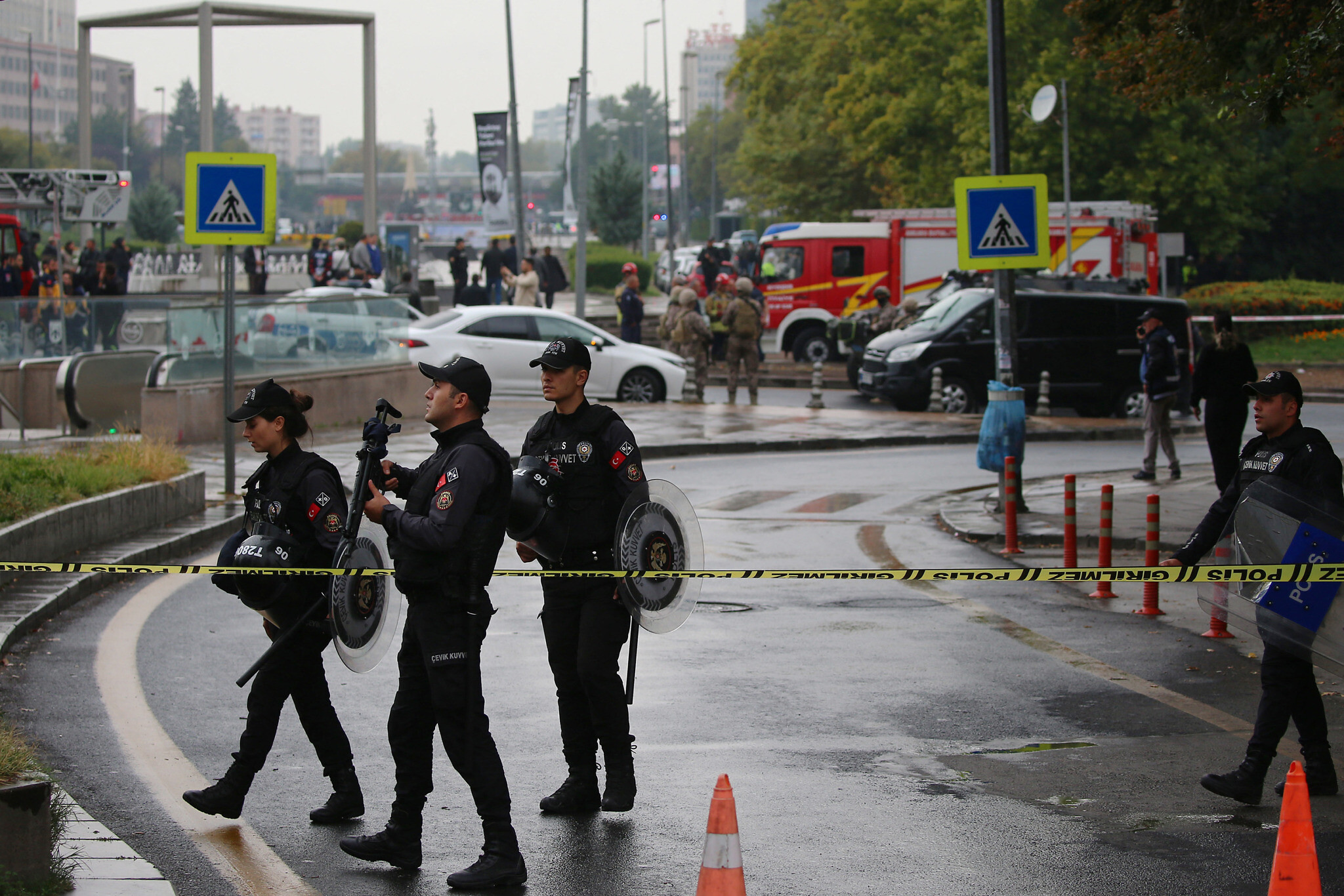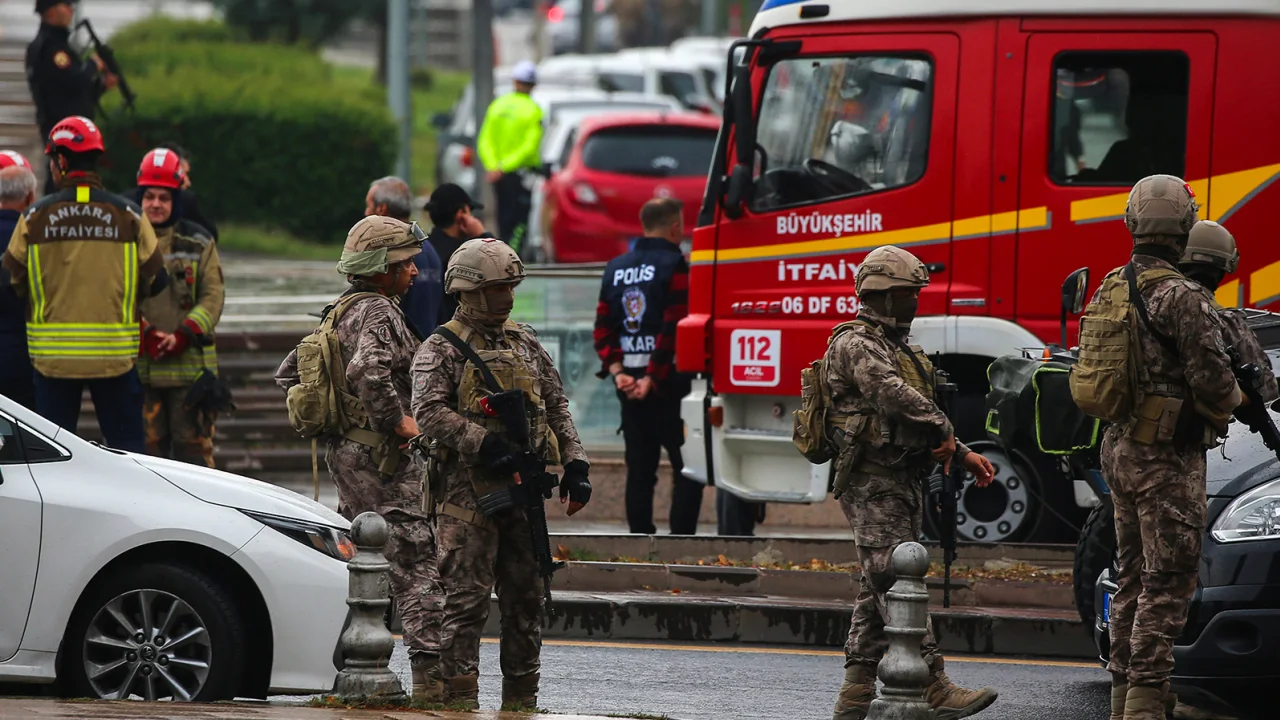Turkey Launches Airstrikes On PKK Targets In Iraq Following Deadly Bombing In Ankara
Turkey launches airstrikes on PKK targets in Iraq following deadly bombing in Ankara, the latest incident in their nearly four-decade-long insurgency.
Author:Suleman ShahReviewer:Han JuOct 02, 202360.4K Shares817.2K Views

Turkey launches airstrikes on PKK targets in Iraq following deadly bombing in Ankara, the latest incident in their nearly four-decade-long insurgency.
The Kurdistan Workers' Party (PKK) claimed responsibility for a fatal blast in the capital, the latest strike in the insurgency's almost four-decade history.
The Turkish Defense Ministry reported that its warplanes had successfully destroyed 20 PKK targets, including caves, bunkers, shelters, and warehouses located in regions such as Metina, Hakurk, Kandil, and Gara.
The ministry cited self-defense rights under Article 51 of the United Nations Charter as justification for the strikes.
“„Many terrorists were neutralized by using the maximum amount of domestic and national ammunition.- The Turkish Defense Ministry
PKK Claims Responsibility For Ankara Bombing
The PKK, recognized as a terrorist organization by Turkey, the United States, and the European Union, declared its involvement in the bombing outside Turkey's Interior Ministry building.
This attack resulted in one fatality and left two individuals injured. According to the pro-PKK Firat NewsAgency, the organization stated that it had orchestrated the attack.
The Turkish Interior Ministry provided further details on the Ankara attack, revealing that two assailants had murdered a civilian and stolen his vehicle ahead of the opening of parliament.
Two police officers suffered non-life-threatening injuries during the incident. One of the attackers detonated explosives, while the other was "neutralized" by security forces.
During the investigation into the Ankara bombing, authorities discovered a cache of weapons and explosives at the scene.
The recovered items included four different types of firearms, three hand grenades, a rocket launcher, and C-4 explosives.
The Turkish Ministry confirmed that at least one of the attackers was a confirmed member of the PKK, while the identity of the second attacker remained undisclosed.
Turkey's Ongoing Anti-PKK Operations
Kurds, the largest minority group in Turkey, constitute between 15% and 20% of the population, according to Minority Rights Group International.
Iran, which recognizes the province of Kordestan in Kurdistan, and Iraq, which recognizes the northern autonomous territory known as the Kurdistan Regional Government (KRG) or Iraqi Kurdistan, both acknowledge Kurdistan, a non-governmental area and one of the biggest stateless states in the world.
The PKK has long been accused by Ankara of training separatist fighters and launching attacks against Turkey from its bases in northern Iraq and Syria, where a PKK-affiliated Kurdish group controls significant territory.
And in November of last year, a bomb strike on a key public avenue in Istanbul killed six and wounded others; Ankara accused the PKK for the attack.
Turkey has been conducting a series of operations against the PKK both domestically and through cross-border actions into Syria in recent years.
In a parliamentary address following the Ankara attack, Turkish President Recep Tayyip Erdogan reaffirmed Turkey's unwavering commitment to combat terrorism both domestically and internationally.
Erdogan stated that Turkey would persist in its fight against terrorism "until the last terrorist is eliminated domestically and abroad."
He characterized Sunday's attack as the "final flutters of terrorism" in the country, emphasizing that those who threaten peace and security would not achieve their objectives.
“„The villains who threaten the peace and security of citizens have not achieved their objectives and will never achieve them.- President Recep Tayyip Erdogan
Final Words
Turkey's decisive response to the PKK's claimed attack in Ankara highlights the nation's unwavering commitment to combating terrorism.
The military airstrikes on PKK targets in Iraq demonstrate Turkey's resolve to neutralize threats both within its borders and in neighboring regions.
President Erdogan's firm stance underscores the nation's determination to safeguard its citizens and maintain peace and security.

Suleman Shah
Author
Suleman Shah is a researcher and freelance writer. As a researcher, he has worked with MNS University of Agriculture, Multan (Pakistan) and Texas A & M University (USA). He regularly writes science articles and blogs for science news website immersse.com and open access publishers OA Publishing London and Scientific Times. He loves to keep himself updated on scientific developments and convert these developments into everyday language to update the readers about the developments in the scientific era. His primary research focus is Plant sciences, and he contributed to this field by publishing his research in scientific journals and presenting his work at many Conferences.
Shah graduated from the University of Agriculture Faisalabad (Pakistan) and started his professional carrier with Jaffer Agro Services and later with the Agriculture Department of the Government of Pakistan. His research interest compelled and attracted him to proceed with his carrier in Plant sciences research. So, he started his Ph.D. in Soil Science at MNS University of Agriculture Multan (Pakistan). Later, he started working as a visiting scholar with Texas A&M University (USA).
Shah’s experience with big Open Excess publishers like Springers, Frontiers, MDPI, etc., testified to his belief in Open Access as a barrier-removing mechanism between researchers and the readers of their research. Shah believes that Open Access is revolutionizing the publication process and benefitting research in all fields.

Han Ju
Reviewer
Hello! I'm Han Ju, the heart behind World Wide Journals. My life is a unique tapestry woven from the threads of news, spirituality, and science, enriched by melodies from my guitar. Raised amidst tales of the ancient and the arcane, I developed a keen eye for the stories that truly matter. Through my work, I seek to bridge the seen with the unseen, marrying the rigor of science with the depth of spirituality.
Each article at World Wide Journals is a piece of this ongoing quest, blending analysis with personal reflection. Whether exploring quantum frontiers or strumming chords under the stars, my aim is to inspire and provoke thought, inviting you into a world where every discovery is a note in the grand symphony of existence.
Welcome aboard this journey of insight and exploration, where curiosity leads and music guides.
Latest Articles
Popular Articles
